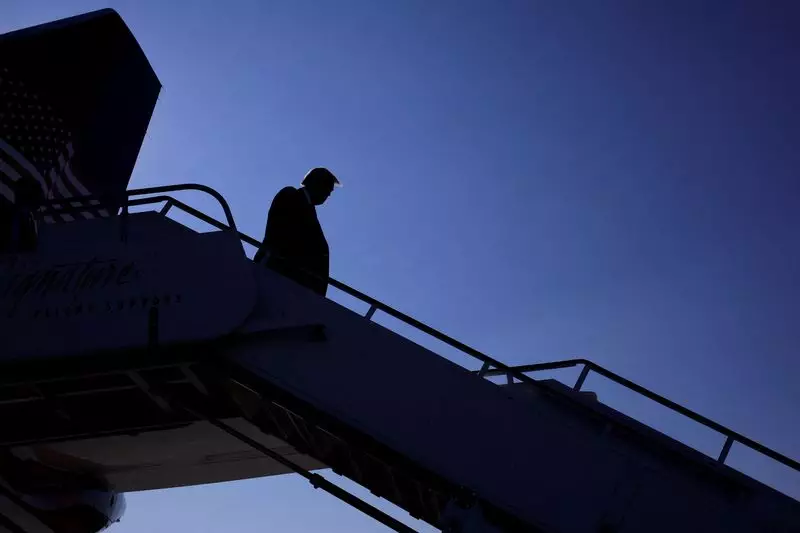The online betting landscape, particularly in political events, has become a focal point of debate and intrigue in recent months. Reports have emerged regarding substantial bets placed on the outcome of the 2024 U.S. Presidential election, with significant stakes on former President Donald Trump emerging as a dominant candidate against his rival, Vice President Kamala Harris. The growing interest has sparked widespread discussions not only about the electoral prospects but also about the implications of these bets being placed by non-American entities, raising questions about the intersection of gambling, politics, and regulatory oversight.
Recent analyses revealed that over $30 million in bets on Trump’s prospective victory were made on the crypto-based prediction market, Polymarket. Intriguingly, sources indicate that these bets are linked back to non-American players, which complicates the narrative around who is influencing the betting landscape for U.S. elections. With opinion polls showing a tight race—Trump garnering approximately a 60% likelihood of winning as opposed to Harris at 40%—the motivations and identities of these international bettors have piqued interest within political circles and social media platforms alike.
This escalation in wagering raises pivotal questions about the nature of involvement from outside the United States. The overall betting urgency appears to contrast starkly with the perceptions of American voters’ conjectures about the political climate—a situation that might lead to further scrutiny and speculation regarding foreign interests in American democratic processes.
Polymarket has evaded framing the betting dynamics within a purely American context, citing their policy which prohibits U.S. nationals from engaging in such political betting. This restriction has created a vacuum that international participants have filled. The company has instituted measures to verify the geographical locations of its large traders, seeking to ensure compliance by diminishing the effectiveness of VPNs and other anonymity-concealing tools.
The Commodity Futures Trading Commission (CFTC) has historically maintained a firm stance against allowing Americans to bet on elections, claiming such activities would shift responsibilities onto the agency that are outside its main regulatory mission. CFTC Chairman Rostin Behnam emphasized this detachment from oversight in a recent statement, suggesting that monitoring electoral wagers would unfairly burden the commission.
A noteworthy case has arisen in the backdrop of these developments, wherein Kalshi, a separate betting platform, has challenged the CFTC’s prohibitions in federal court. The legal victory for Kalshi on October 2, 2023, potentially opens the door for American bettors to engage in political wagering just weeks before a pivotal election, a situation laden with both promise and peril. Their figures mirror the trends on Polymarket, yet maintain slightly divergent odds, reporting Trump at 57% and Harris at 43%.
The juxtaposition between the two markets encapsulates the evolving landscape of political betting, transforming how insights into electoral probabilities are gleaned and interpreted. Advocates for legalizing these activities argue that derivatives in political betting could furnish invaluable markers for public sentiment, enriching our understanding of electoral trends. Nonetheless, the intertwining of gambling with the electoral process raises significant ethical questions about the integrity of political outcomes influenced by speculative actions.
As we draw closer to the 2024 Presidential Election, the contours of this betting scenario will continue to shift, influenced not only by political realities but also by the actions of international stakeholders shaping American electoral narratives from afar. The unfolding events and court rulings highlight the pressing need for regulatory clarity in an ever-evolving marketplace that intertwines sports, politics, and speculation. In this intricate web, the implications stretch beyond mere betting odds, requiring careful examination of how international influences might impact domestic democratic processes and public confidence in electoral outcomes.

